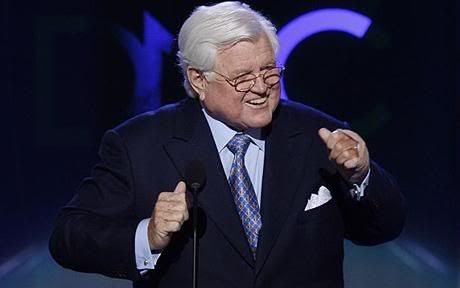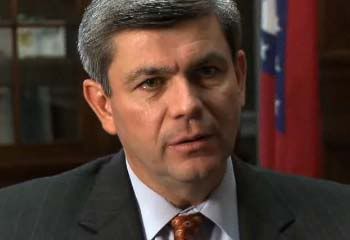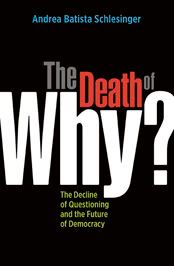Also, it was easy to rationalize sustaining the occupation that occurred after the Six Day War in 1967 when the Palestinians engaged in terrorism. It was easy to perceive and rationalize Israeli’s actions as defensive and certainly not oppressive.
As a result, the voice of American Jews was AIPAC centric and monolithic. Well, the time has long past for American Jews to confront harsh truths. Until we do and are upfront about it, America’s political leadership will remain skittish and reluctant to do what’s right. And why should we fear the truth? As one of my favorite bloggers, Martin Longman of Booman Tribune observed in a recent post:
“One of the interesting things about Israel is that it is much more self-critical and contemplative than most people give it credit for. All you really have to do to prove this to yourself is to read their left-wing press. You'll quickly discover that Jews living in Israel consistently publish things in the newspaper that our mainstream media would never allow to see the light of day.”So if the Israel press can be honest about itself why can’t we? One truth is that Jewish people today are far less oppressed than most in this cruel and barbaric world. Yes, anti-Semitism still exists both in America and abroad. For the most part however, my generation of fellow Jews have successfully assimilated in the respective cultures we live in. We’re not excluded from jobs or universities because we’re Jewish anymore. Nobody has refused to be my friend because I’m Jewish. I’m assimilated yet my identity as a Jew still remains and is not threatened.
Yes a strong Israel deserves credit for helping Jewish people become more secure in the world. And I staunchly defend Israel’s right to exist. You may disagree with Israel’s founding in 1948 but Jewish people were in exile after the Holocaust and at the time most nations were not accepting Jewish refuges. Israel was essential and sixty two years later it’s irrational and wrong to expect the Jewish state to just disappear. That’s a non-starter and if that’s your position you expose yourself as not being interested in a just peace.
Sadly though, we now have to confront another harsh truth. Israel’s image as a little country defying the odds in a hostile region fueled by aggressive Arab nationalism is no longer valid. Indeed, most Sunni Arab states today know Israel is here to stay and would prefer the Israel/Palestinian conflict disappear so they could focus instead on the threat posed by Iran. The Sunni-Arab states are far more concerned with Islamic fundamentalism that undermines their stability and power than Israel.
Israel’s occupation of the West Bank coupled with its failed blockade of Gaza is playing into its enemies hands and undermines the national security interests of its greatest benefactor: the United States. Yes the peace activists from the Turkish flotilla were being provocative and Israel clumsily and amateurishly gave them the incident they wanted. War is politics by other means and Israel never misses an opportunity to inflict harm on itself.
Admittedly, I myself have been too slow and knee jerk to defend Israeli policies even as I critiqued my own country for pursuing the folly of the “global war on terror.” Since the second Lebanon war took place in 2006 however I’ve belatedly come to the realization that Israel's political class is irredeemable and can't be trusted.
It’s also remarkable to me that Jews who are liberal on most issues and regard most conservative positions in recent years to be irrational, take comfort in the uncritical support of insane right wing pundits such as Charles Krauthammer. This is a man who recently wrote a column alleging that environmentalists contributed to the British Petroleum disaster in the Gulf. I’m supposed to just accept that such a person is wise with respect to obtaining peace in the Middle East? As John Boehner might say, hell no!
The only viable solution is a just two state solution that ensures Israeli security and autonomy for the Palestinians. Ultimately such a solution will resemble the settlement that Bill Clinton attempted to negotiate in the waning days of his administration. To get there, American Jews need to flex their political muscle in a new direction.
It’s up to Jews the world over, especially American Jews, to empower their elected leaders to persuade Israel to turn their blockade of Gaza over to the international community. In such an arrangement, Hamas will be under the microscope like it never has been before and the Palestinian Authority that has made tremendous self-governing progress in the West Bank will be further empowered.
One way Jewish people can influence the conversation away from the monolithic AIPAC media spin machine is to contribute to J-Street, an organization of progressive Jews attempting to establish a counterweight to the Israeli apologist lobbying machine. American politicians will never take on this lobby unless they have cover from Jewish people willing to speak up. J-Street is rather like Israel was in its early days, an underdog up against giants.
What would also help is some kind of gesture from an American Jewish politician sympathetic to J Street’s views but with credibility as a friend of Israel. A dramatic speech at J-Street’s offices might empower congress and the Obama administration to pursue another course.
I nominate Wisconsin Senator Russ Feingold for the job. He’s a true liberal who has never been shy about going against the grain and doing what’s right on issues such as civil liberties. Feingold’s often spoken of the enormous pride he has in his Jewish heritage – a pride that I share.
I urge anyone reading this to either email or telephone Senator Feingold’s office and ask him to take a stand against the Israeli lobby.



